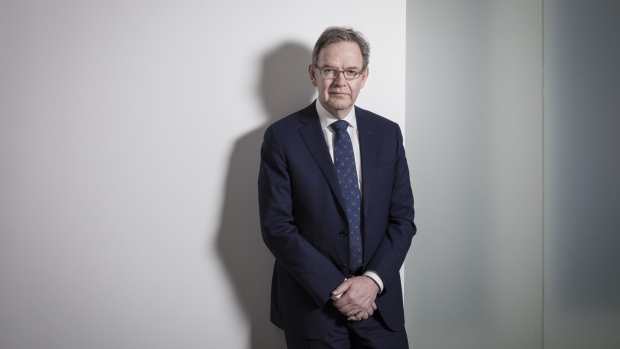Oct 14, 2022
ECB’s Maijoor Calls for Bank Dividend Restraint as Economy Slows
, Bloomberg News

(Bloomberg) -- European banks should exercise restraint in dividends and buybacks to ensure reserves are enough to weather an expected economic downturn, a top regulator said, potentially setting investors up for disappointing payouts.
The European Central Bank and other authorities will evaluate banks’ plans on a “case-by-case” basis due to differences in their vulnerability to “recessionary pressures,” Steven Maijoor, who sits on the ECB’s supervisory board, said in an interview. The prospect of a complete gas shut-off from Russia is one of the scenarios that regulators are considering, he said.
Maijoor’s comments are among the strongest yet from European regulators, and signal that the huge post-pandemic capital return ambitions of the continent’s banks may need to be reviewed. Banks from ING Groep NV in the Netherlands to UniCredit SpA in Italy have pledged to return billions of euros in excess capital to investors, only to see the economic outlook clouded by rampant inflation and the war in Ukraine.
“Banks have significant buffers above their minimum requirements and we’re in favor of maintaining those buffers,” Maijoor said at the Dutch central bank on Tuesday, where he serves as a member of the executive board. “That means when looking at dividends, we take recessionary trajectories into account.” He declined to comment on specific banks.
Read More: UniCredit, BNP Lead EU Banks Planning Record $31 Billion Payout
This week the International Monetary Fund cut its forecast for global growth next year, highlighting that efforts to manage the hottest inflation in decades may add to the damage from the war and China’s slowdown. About one third of the global economy risks contracting next year, it said.
Bank earnings are enjoying support heading into another period of economic uncertainty, notably because the fight to head off inflation is causing central banks around the world to increase interest rates. That benefits lenders’ net interest income, or the spread between what they charge for loans and pay on deposits.
Even if banks escape a spike in loan losses, paying fat dividends could cast them in a negative light given governments are rescuing energy companies and subsidizing gas bills with taxpayer money. The ECB imposed temporary payout restrictions at the height of the pandemic to ensure the industry had sufficient capital to absorb losses and keep lending.
Relative Measures
“What we’re asking is to be restrained with dividends and share buybacks,” said Maijoor.
Maijoor said he’s also concerned that banks are pledging to distribute specific amounts of capital rather than use “relative measures” to calculate payouts. “That’s the thing that we as supervisors don’t like because these type of commitments can become very problematic if your subsequent profit levels don’t meet your expectations,” he said.
Still, Maijoor said the focus on individual banks rather than restrictions across the industry is different to the approach taken in the pandemic. He also signaled that regulators don’t want to undermine banks in the eyes of investors. Senior bankers say the ECB’s de-facto ban on payouts in 2020 damaged their prospects and risked cutting them off from sources of fresh capital.
“You need to have an open eye that there are shareholders, and having access to capital markets is important for banks,” he said. “We understand that from a capital market access perspective, you may want to pay dividends and do share buybacks in some cases.”
©2022 Bloomberg L.P.

